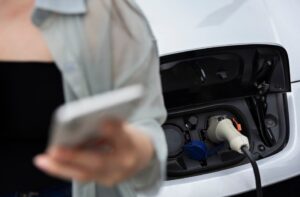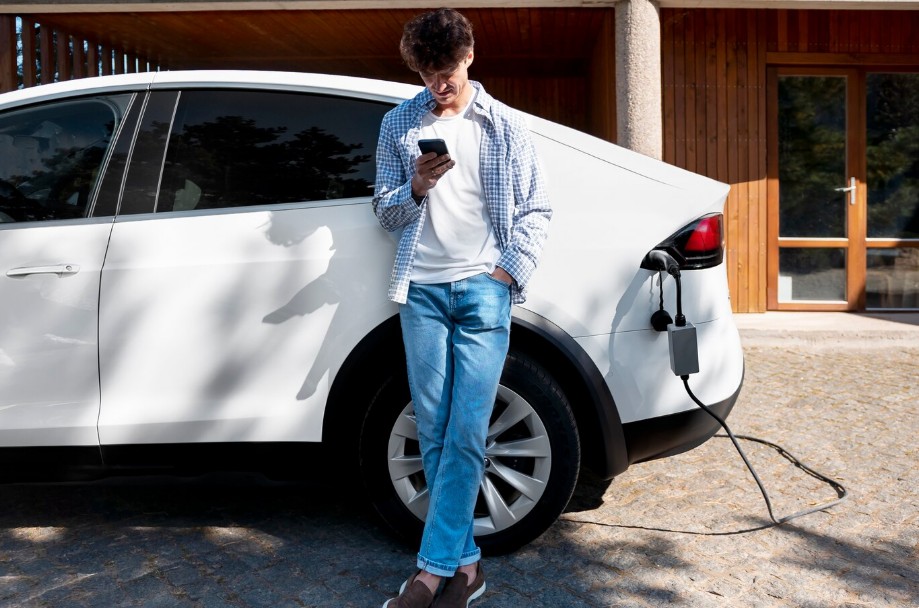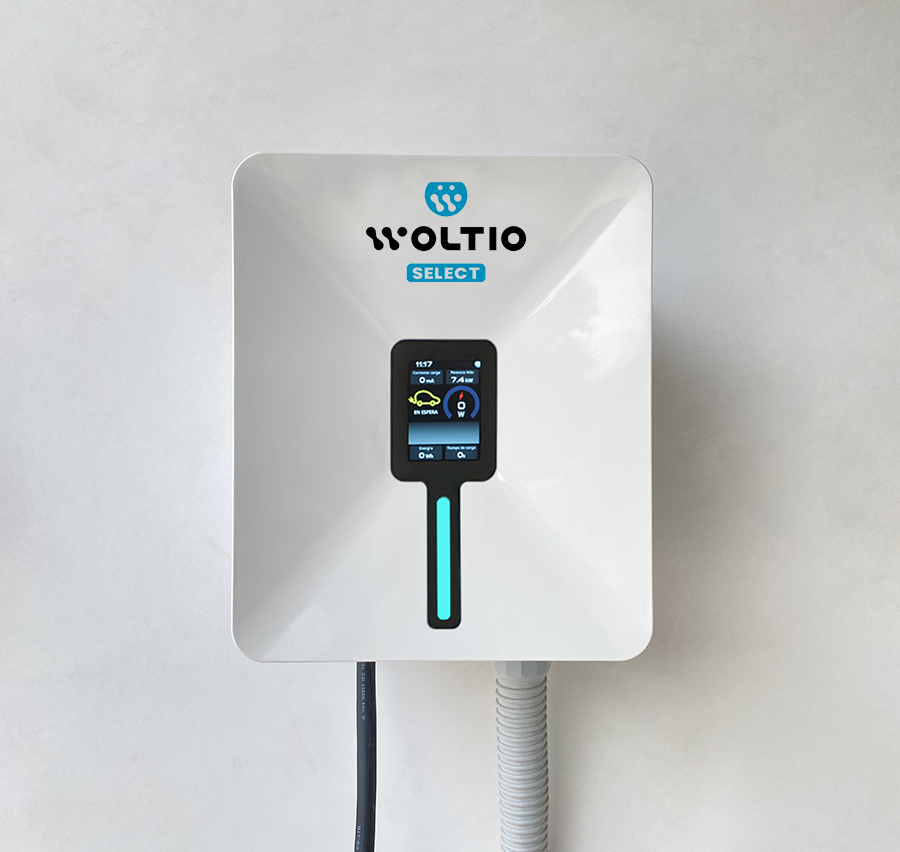
What happens if the power goes out while you’re charging your car?
By simply looking around nowadays, we can clearly see that we live in a world increasingly focused on reducing the
Política de cookies
Con el objetivo de mejorar tu experiencia en nuestra web, y poder mejorarla, usamos cookies propias y de terceros. Si no tienes inconveniente al respecto, simplemente haz clic en «Aceptar todo» o, si lo deseas, selecciona qué tipo de cookies permites que almacenemos haciendo clic en «Ajustes». Lee nuestra política de cookies
We use cookies to help you navigate efficiently and perform certain functions. You will find detailed information about all cookies under each consent category below.
The cookies that are categorized as "Necessary" are stored on your browser as they are essential for enabling the basic functionalities of the site. ...
Necessary cookies are required to enable the basic features of this site, such as providing secure log-in or adjusting your consent preferences. These cookies do not store any personally identifiable data.
No cookies to display.
Functional cookies help perform certain functionalities like sharing the content of the website on social media platforms, collecting feedback, and other third-party features.
No cookies to display.
Analytical cookies are used to understand how visitors interact with the website. These cookies help provide information on metrics such as the number of visitors, bounce rate, traffic source, etc.
No cookies to display.
Performance cookies are used to understand and analyze the key performance indexes of the website which helps in delivering a better user experience for the visitors.
No cookies to display.
Advertisement cookies are used to provide visitors with customized advertisements based on the pages you visited previously and to analyze the effectiveness of the ad campaigns.
No cookies to display.

Electric mobility has become a real option for many drivers looking for more sustainable and environmentally friendly transportation alternatives. With the arrival of more electric car models on the market, the need for efficient charging infrastructures has increased.
It is in this context that the question of whether a home charger is worthwhile arises. Given the scarcity of public charging stations and the upward trend in electric car use, more and more owners of electric or plug-in hybrids are thinking that it is worthwhile to have their own charger at home.
One of the first factors to consider is the cost of installing an electric car charger.
Depending on the type of charger and the complexity of the installation, prices can vary, but generally speaking, the initial cost usually includes the purchase of the equipment and the labor required to install it safely.
In many cases, equipment of different power ratings and varying charging capacities are available.
When evaluating the cost, it is also important to take into account possible subsidies or incentives that some governments or local administrations offer to promote electric mobility, which can influence the profitability of a charger for your electric car.
Apart from the initial investment, it is important to assess whether the electrical conditions of the home require prior adjustments, such as the installation of a more powerful electrical panel or the adjustment of the home network.
If you want to know the price range of our smart chargers, be sure to take a look at our range of EV chargers for home.

To analyze the profitability of an electric car charger it is necessary to compare the cost of electricity at home and at public charging stations. Although special rates are sometimes offered at public charging points, the conditions at home are usually more interesting, especially when devices and programs are configured to take advantage of the low rate.
Another point to consider is the durability and maintenance of the equipment. Home chargers are designed to be durable, and preventive maintenance ensures that the investment will pay off over many years. This factor is critical when evaluating whether a home charger is really worthwhile, as the stability of the savings is based on reliable and safe operation.
Cost-effectiveness analyses of an electric car charger show that, with continued use and proper charging planning, operating costs can be much lower than other charging alternatives, so installing an electric car charger at home is often a compelling option.
The initial cost of installing a charger at home may raise doubts. And it is normal, the investment is powerful, but the key to have a clear answer is in the long term. With the progressive increase in the use of electric vehicles, having a private charging system becomes more and more convenient.
The profitability of an electric car charger is not only measured in the cost of installation, but also in the savings generated over time.
If you compare the price of electricity at home with charging rates at public charging stations, you can see that the initial investment can be amortized in just a few years. Moreover, being able to plan and manage energy consumption optimally adds value to the investment.
It is important to note that in addition to the economic issue, the installation of a charger at home increases the user’s comfort and autonomy. Not having to travel to a charging station saves time and resources, which contributes to the owner’s well-being and reinforces the idea that a home charger is worthwhile.
A balance between cost, savings and convenience leads to the conclusion that, in many cases, it does pay off. In each case you have to evaluate your own consumption and electricity tariffs to determine the exact payback period, but current trends suggest that this option is becoming increasingly attractive.
One of the strongest arguments in favor of having a home charger is that charging at home is generally cheaper than using public charging stations. Residential electricity rates are usually lower and, in many cases, allow charging to be scheduled at off-peak times.
Charging the car at night or at specific times avoids consumption peaks and makes it possible to take advantage of reduced tariffs. This not only leads to direct savings in energy costs, but also optimizes the performance of the home’s electrical system. By having total control over the load, overloads or interruptions that may affect other appliances are avoided.
Although public stations offer convenience in certain cases, their frequent use can result in higher expenses in the long run. Therefore, from a home economics point of view, it is cheaper to charge at home.
Moreover, for those who already enjoy the certainty of having their own charging system, the question of the cost-effectiveness of an electric car charger is reinforced, since consumption can be managed optimally and without relying on third parties.
If you are looking for more information, remember that we already talked about how much it costs to charge an electric car here.
The benefits of installing a charger at home go beyond simple economic savings. Convenience and flexibility are some of the most significant advantages. Having a charging solution at home allows the user to have power whenever they need it, without having to look for a nearby charging station or adjust their travel times.
In addition, safety is another factor in favor of home charging. Modern charging equipment is equipped with protection systems that prevent overcharging, short circuits or electrical problems. This ensures that the car is recharged safely and reliably, which is essential for both the vehicle and the home.
Another benefit is the possibility of integrating the charging system with the management of household energy consumption. With the emergence of renewable energies, such as solar panels, many homeowners are choosing to combine the charging of their electric vehicle with the generation of clean energy.
This integration further reduces costs and, at the same time, contributes to environmental sustainability. This complements the idea that a home charger is worthwhile, as it makes the most of the available technology to improve the quality of life and care for the environment.

By simply looking around nowadays, we can clearly see that we live in a world increasingly focused on reducing the

Smart charging is already for many a prerequisite when charging their electric car. Thanks to the performance of smart chargers,

In recent years, the rise of electric vehicles has brought with it numerous advances in technology and solutions for recharging